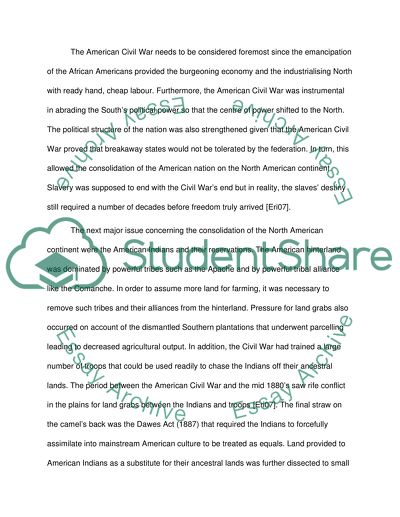Cite this document
(“The American Civil War Essay Example | Topics and Well Written Essays - 1750 words”, n.d.)
Retrieved from https://studentshare.org/history/1485638-the-american-civil-war
Retrieved from https://studentshare.org/history/1485638-the-american-civil-war
(The American Civil War Essay Example | Topics and Well Written Essays - 1750 Words)
https://studentshare.org/history/1485638-the-american-civil-war.
https://studentshare.org/history/1485638-the-american-civil-war.
“The American Civil War Essay Example | Topics and Well Written Essays - 1750 Words”, n.d. https://studentshare.org/history/1485638-the-american-civil-war.


